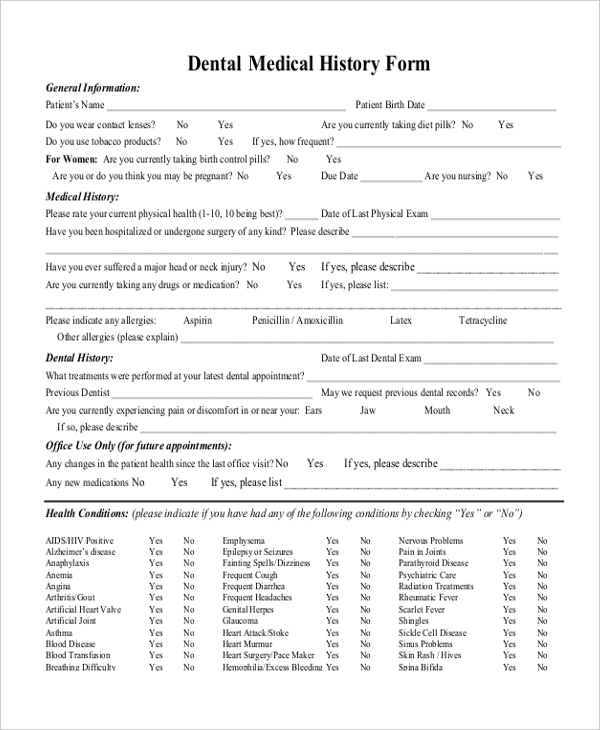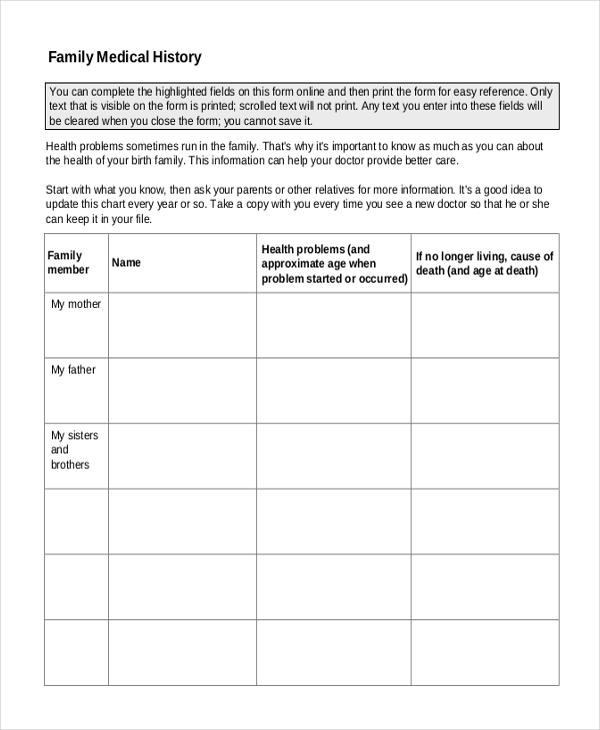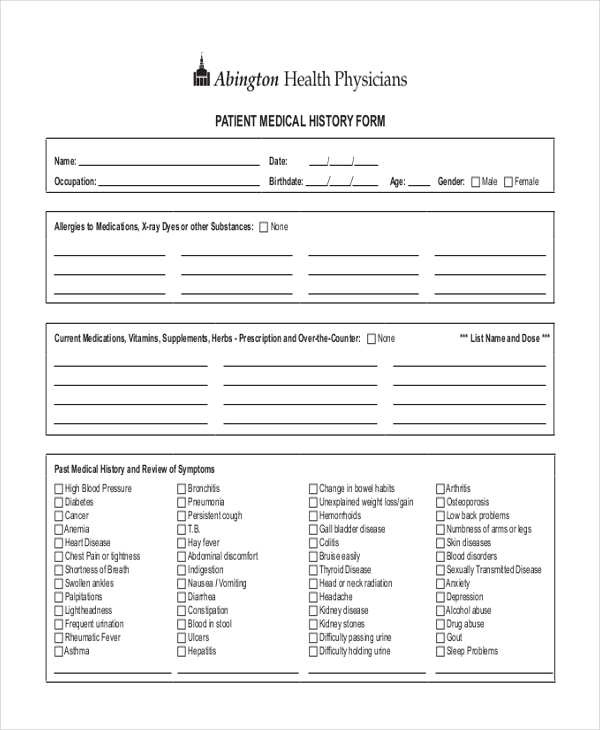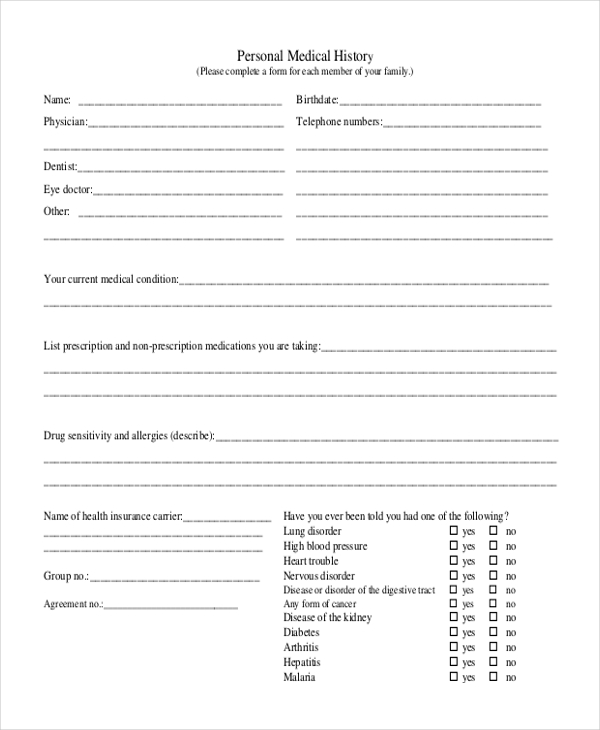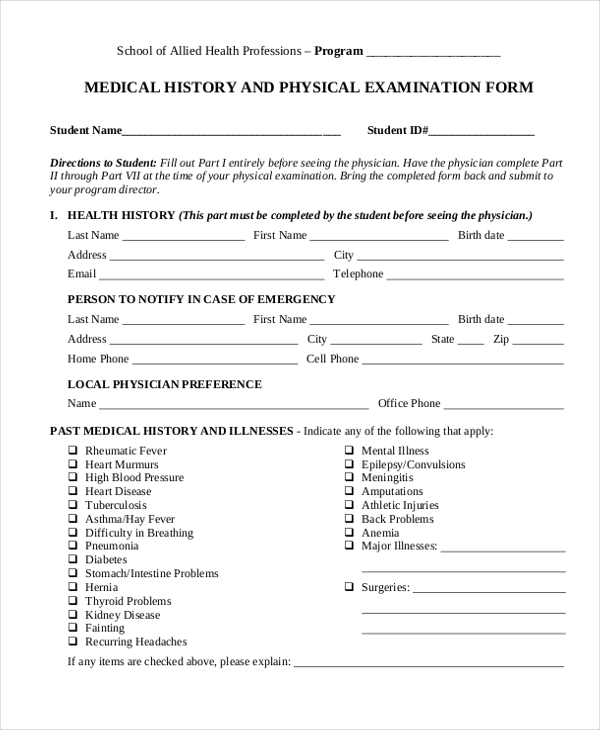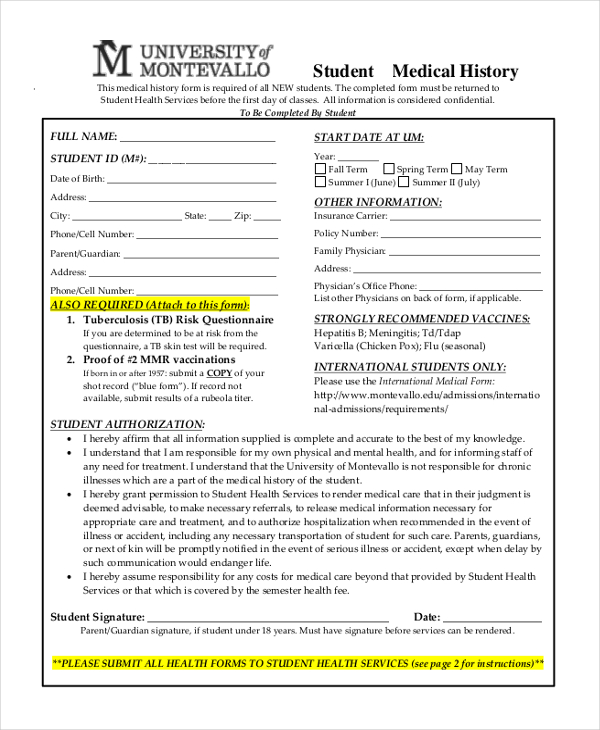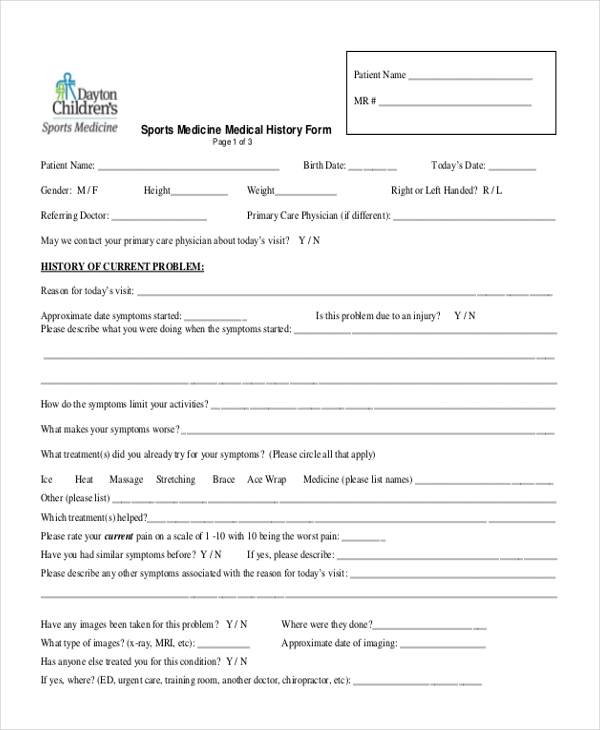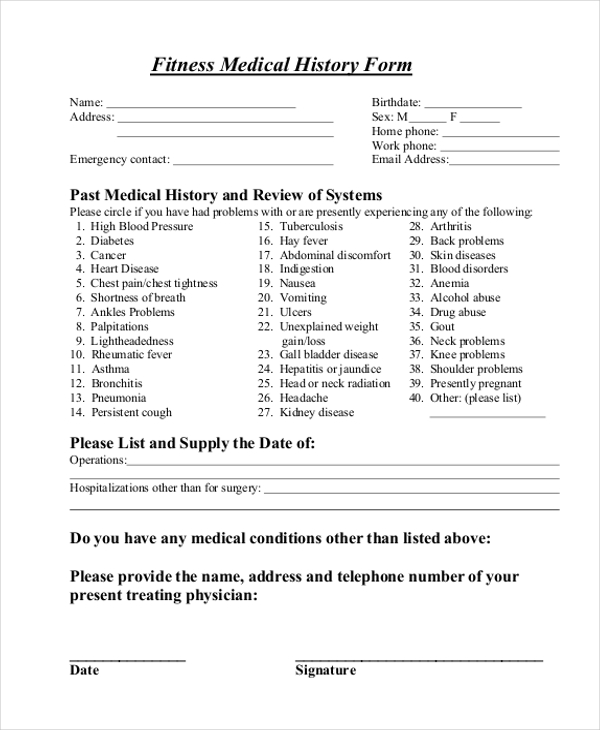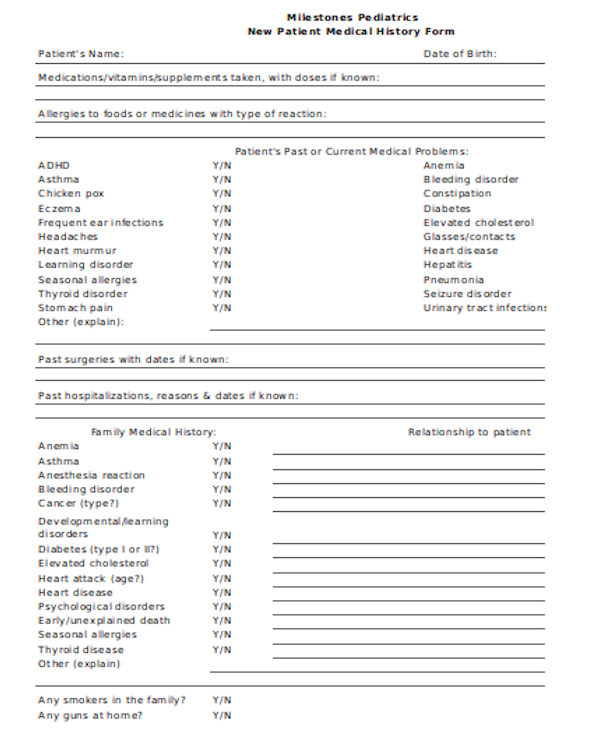Patient’s Medical History plays a crucial role for a Doctor to understand his past health and medications. This is important since it helps the Doctor to decide on the future course of treatment that can be given to the patient. It also allows the Doctor to understand the Patient’s exact health status at all points of time. Some more important Medical Forms are Medical Examination Forms, Medical Clearance Forms, and Medical Records Release Forms.
Sample Dental Medical History Form
Medical History Form for Dental is a format that captures the Medical History of a patient who is undergoing treatment for his medical condition related teeth and dental issues. You may also see Medical Records Release Forms.
Family Medical History Form
Family Medical History Form is a format that captures the Medical History of family pertaining to ailments which are hereditary in nature. This will help the Doctors to decide on the course of treatment
Example of Patient Medical History Form
Patient Medical History Form is a format that captures a patient’s medical history in particular. This format acts as a crucial source for the Doctors to decide on the course of treatment. You can also see Medical Consent Forms.
Personal Medical History Form
Personal Medical History Form is a format that captures the personal Medical history of a patient in a complete manner. This format assists the different specialists to decide on their course of treatment
Medical History and Physical Examination Form
Medical History and Physical Examination Form is a format that captures the results of Physical examination done on patients along with the patient’s history of ailments in a detailed manner. You can also see Medical Examination Forms.
Child Medical History Form Format
Child Medical History Form is a format that captures the medical history of a child in a complete manner. This format can be modified the Doctors to suit their requirement
Free Medical History & Screening Form
Medical History Screening Form is a format that captures the screening results of a Medical History. This format can be modified by the users to suit their requirements
Student Medical History Form in PDF
Student Medical History is a format that captures the medical history of a student. This format can be fully modified by the Medical Professionals to suit the various requirements
Downloadable Dermatology Medical History Form
Dermatology Medical History Form is a format that captures the medical history of a person pertaining to skin related ailments. It captures all issues pertaining to Dermatology in an in-depth manner
Sports Medicine Medical History Form
Sports Medicine Medical History Form is a format that captures the medical history of sports people pertaining to their ailments as well as the medicines administered to them
Fitness Medical History Form
Simple Medical History Form
How to Use Medical History Form?
Medical History Form is a format that captures the complete medical history of patients who suffer from various kinds of ailments. Medical History Form also captures the complete list of medicines prescribed for patients in chronological order. Medical History Forms acts as the basis for Doctors to understand the course of treatment being given to the patients during all points of time. These forms can be used by Doctors who belong to many branches of Medicine including Dermatology and Dentistry. You can also see Medical Reimbursement Forms.
Who Benefits From Medical History Forms?
Every patient benefits from the Medical History Form. Every Doctor and Medical Professional who takes care of patients benefit out of Medical History Form. Medical History Forms help Doctors to understand the course of treatment being given to the patients over a period of time. These forms also provide pertinent information to the Medical Professional to decide on the future course of treatments to be given to patients, based on the medical history till then
Medical History Forms can be downloaded by users for free of cost. These forms can be customized to suit the customer requirements. Medical History Form can be used by Doctors who belong to different branches of medicine that may belong to dentistry, dermatology and much more. Medical History Forms are highly useful.
Related Posts
-
FREE 7+ Sample Family Medical History Forms in MS Word | PDF
-
FREE 8+ Sample Medical Renewal Forms in MS Word | PDF
-
FREE 9+ Sample Medical Permission Forms in PDF | MS Word
-
FREE 9+ Sample Medical Records Release Forms in PDF | MS Word | Excel
-
FREE 6+ Sample Army Dental Forms in PDF | MS Word
-
FREE 8+ Sample Medical Necessity Forms in PDF | MS Word
-
FREE 5+ Sample Medical Combining Forms in MS Word | PDF
-
FREE 9+ Sample Medicare Application Forms in PDF | MS Word
-
FREE 10+ Sample Medicare Forms in PDF | MS Word
-
FREE 9+ Sample BSA Medical Forms in PDF | MS Word | Excel
-
FREE 11+ Sample HIPAA Forms in PDF | MS Word
-
FREE 9+ Sample Injured Spouse Forms in PDF
-
Medical Bill Form
-
Against Medical Advice Form
-
How to Appeal Medical Assessment Verdict? [ What Is, How Do ]
